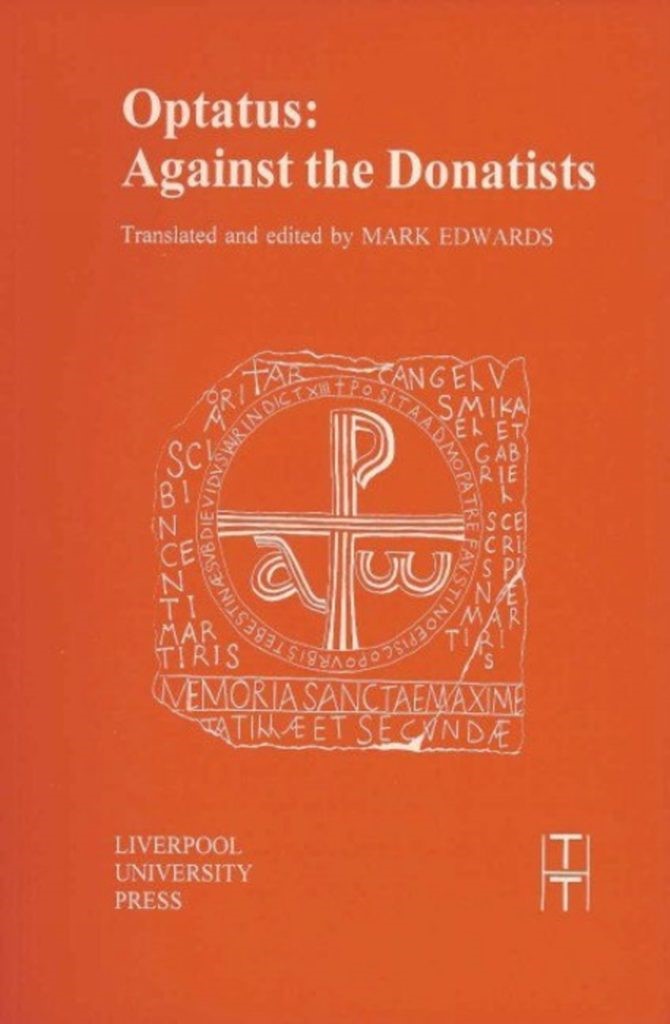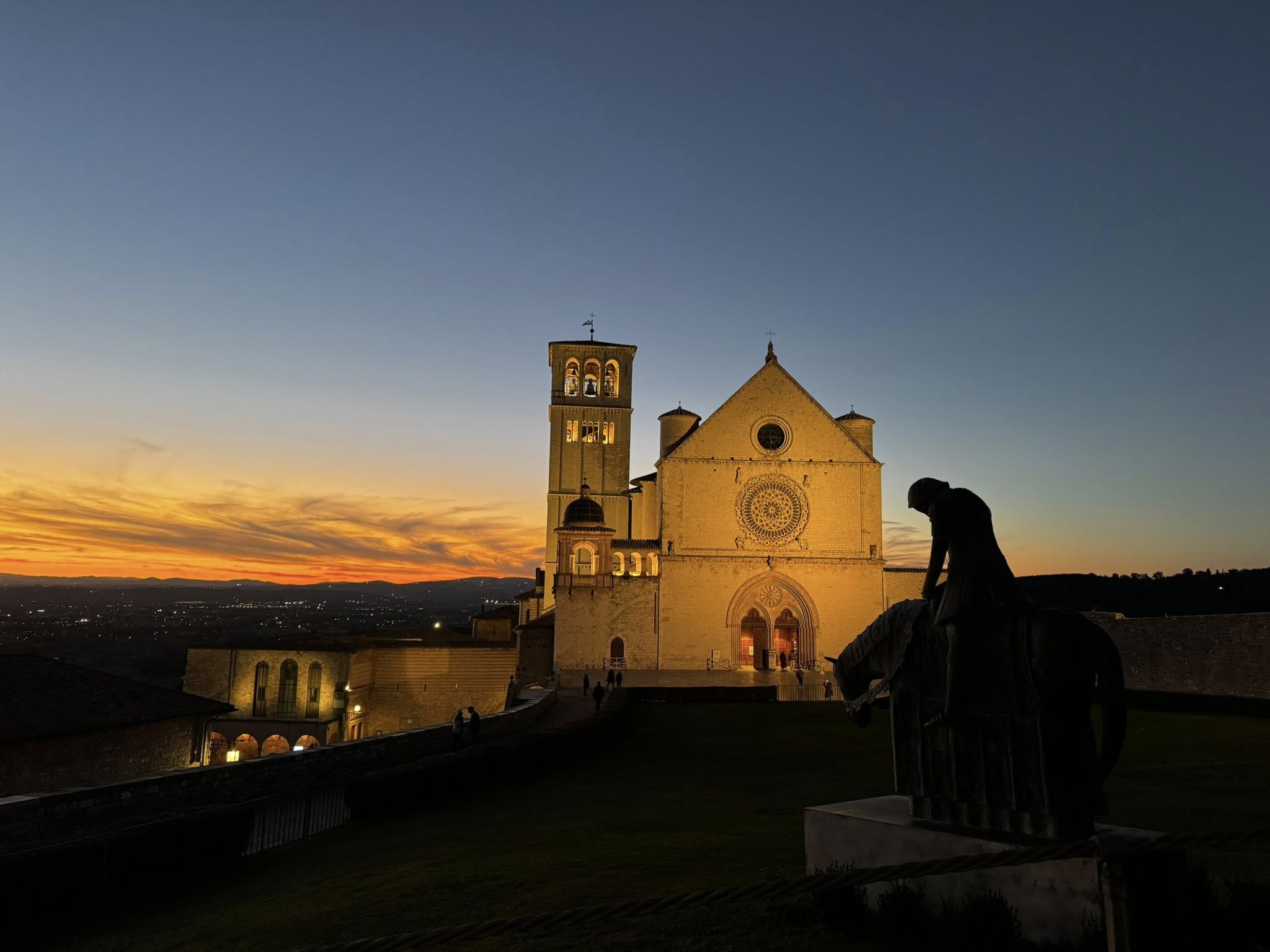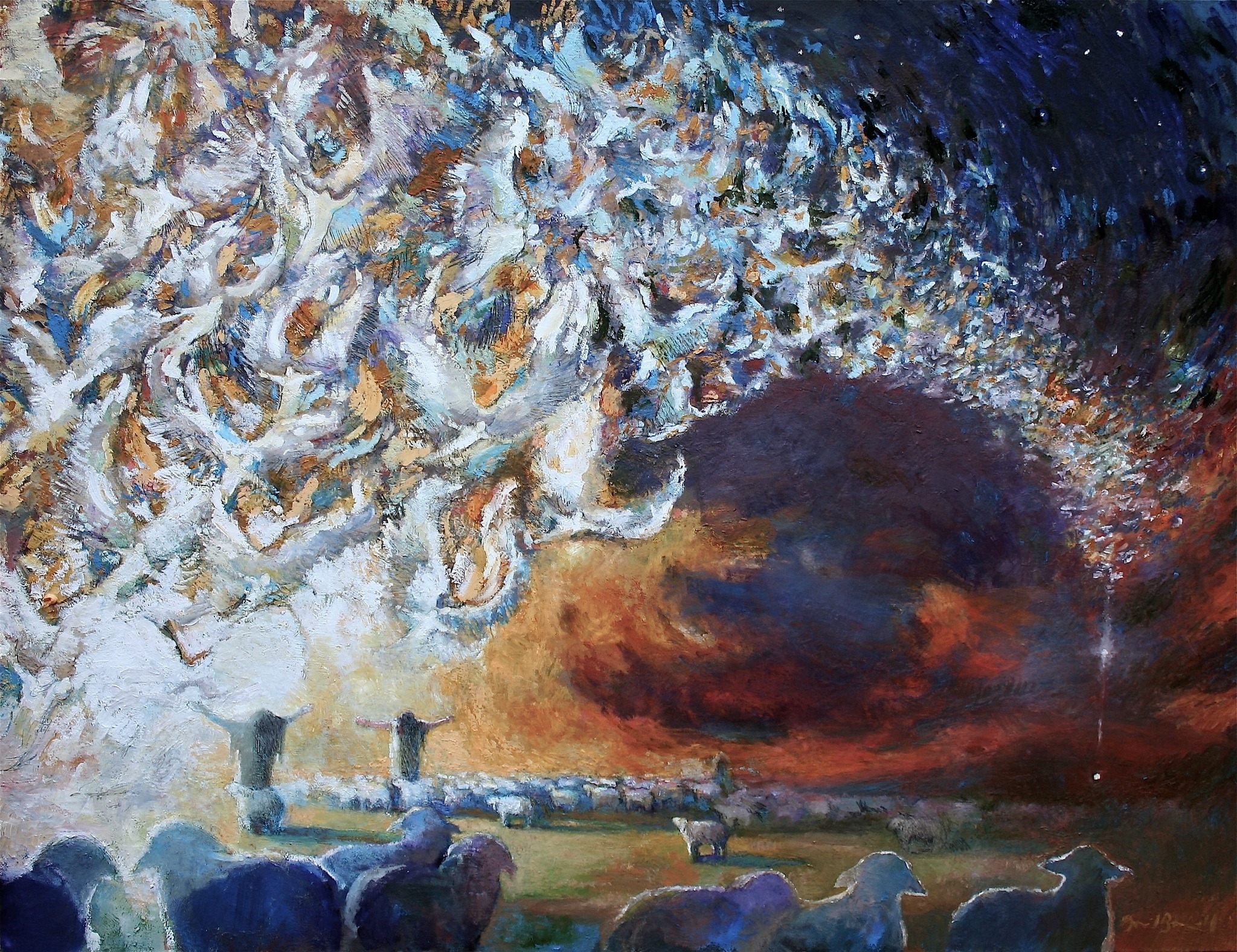– Anastasios
In our little introductions to Church Fathers we are made aware of one important fact: how important they are for Christian literature of the 4th century. This was a century that has seen countless Christian minds, some very famous and some less famous. One of those minds was the one of Saint Optatus (or Optate). He was a Bishop of Milevis (Numidia, today Algeria).
He was a great fighter for the faith, as we can appreciate in his book Against the Donatists. Donatists were heretical sects teaching that Sacraments performed by clergy who were not faultless were not valid. In his book Optatus argued on the reason why schismatics should be called brethren: “Lest anyone should say, that without thought I call them brethren, I would reply that such they are, for we cannot escape from the words of the prophet Isaiah; and, although they would not deny (as all men know well) that they hold us in abhorrence, and ban us utterly and are unwilling to be called our brethren, still we may not depart from the fear of God, for the Holy Spirit exhorts us by Isaiah the prophet, saying: ‘You who fear the Word of the Lord, hear ye the Word of the Lord.’ To those who detest and curse you, and are unwilling to be called your brethren, say ye nevertheless: ‘You are our brethren.’ They therefore are without doubt brothers, though not good brothers. Wherefore let no one marvel that I term those brothers, who are unable to escape being our brethren. They and we have one spiritual birth, though widely differing is our conduct. For even Ham, who mocked undutifully at his father’s shame, was the brother of the innocent. In accordance with his deserts, he incurred the yoke of slavery, so that he – their brother – was assigned in bondage to his brethren. From this we see that, even where there is sin, the name of brotherhood is not lost. Concerning the sins of these our brethren, I will speak in another place. For they, sitting over against us, speak evil things about us. They consort with that Thief who robs God, and share their lot with adulterers (that is, with heretics), and make their sins an object of praise, and plan reproachful words against us Catholics.”
In another passage, Optatus made an important distinction between heretics and schismatics: “Now there is another question: For what purpose have you mentioned those who have not the Sacraments which you and we alike possess? Sound health does not clamor for medicine; strength which is secure in itself does not need outside help; truth has no lack of arguments; it is the mark of a sick man to seek remedies; it is the sign of a sluggard and a weakling to run in search of auxiliaries; it belongs to a liar to rake up arguments. To return to your book, you have said that the Endowments of the Church cannot be with heretics, and in this you have said rightly, for we know that the churches of each of the heretics have no lawful Sacraments, since they are adulteresses, without the rights of honest wedlock, and are rejected by Christ, who is the Bridegroom of One Church, as strangers. This He Himself makes clear in the Canticle of Canticles. When He praises One, He condemns the others because, besides the One which is the true Catholic Church, the others amongst the heretics are thought to be churches, but are not such. Thus He declares in the Canticle of Canticles (as we have already pointed out) that His Dove is One, and that she is also the chosen Spouse, and again a garden enclosed, and a fountain sealed up. Therefore none of the heretics possess either the Keys, which Peter alone received, or the Ring, with which we read that the Fountain has been sealed; nor is any heretic one of those to whom that Garden belongs in which God plants His young trees. Concerning these men, that which you have written at length (although it has nothing to do with our present business) is abundantly sufficient. But to my surprise you have thought good to attach yourselves to those who certainly are schismatics, for in denying the Endowments of the Church both to those who are heretics, and also to schismatics, you have denied them to yourselves. Amongst other things you have said that schismatics have been cut off, like branches, from the Vine, and that they have been reserved, marked off for punishment, like dried wood, for the fires of Hell. But I see that you do not yet know that the Schism at Carthage was begun by your fathers. Search out the beginning of these affairs, and you will find that in associating heretics with schismatics, you have pronounced judgement against yourselves. For it was not Caecilian who went forth from Majorinus, your father’s father, but it was Majorinus who deserted Caecilian; nor was it Caecilian who separated himself from the Chair of Peter, or from the Chair of Cyprian —-but Majorinus, on whose Chair you sit—-a Chair which had no existence before Majorinus himself. Since then there can be no possible doubt that these things have thus happened, and that you are the heirs of Betrayers and schismatics, I am, my brother Parmenian, sufficiently surprised—-seeing that you are yourself a schismatic—-that you should have thought it advisable to join schismatics to heretics. If, however, these are your principles, and you wish to do so, heap up together what you have laid down only a little before. For you have said that ‘It could not be that one who was stained should wash away sins in a baptism-that-is-not-Baptism, that one who is unclean should cleanse, that one who trips men up should raise them, that one who is lost should free, that one who is guilty should give pardon, that one who has been condemned should absolve.’ All these things might well be true of heretics alone, since they have falsified the creed, for amongst them one has said that there are two Gods, though God is One; another wishes the Father to be recognised in the Person of the Son; another robs the Son of God of His Flesh, through which the world has been reconciled to God, and there are yet others of the same kind, who admittedly are separated from Catholic Sacraments. Wherefore you should regret that you have coupled schismatics with such men as these, for, when you thought that you were attacking others, you failed to observe how wide is the gulf between schismatics and heretics, and turned the sword of judgement upon yourself. This is the reason that you do not see which is the Holy Church, and have in this way made confusion of everything.”
A passage that we can read and meditate even today.


 Follow
Follow

